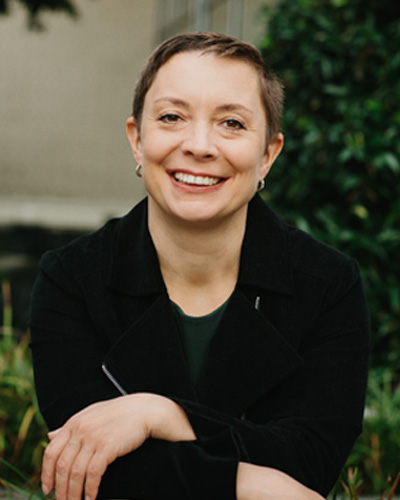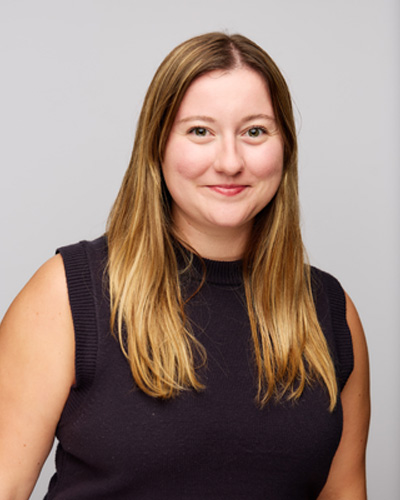Navigating Genetic Information – Genetic Counselling
Genetics
Health research continues to expand our knowledge and ability to understand which gene(s) or changes to our DNA may contribute to our health. Change(s) in DNA and/or genes can lead to certain health conditions, increase our susceptibility to certain diseases, determine how we respond to medication, or influence how we respond to our environment.
Increasing our knowledge about genetics/genomics has led to both advances and increase use of genetic and genomic testing (glossary) and are being used more in the Canadian healthcare system. This has increased the demand for genetic services, such as delivery of genetic information and test results. Providing these services in an understandable and supportive manner is essential in the care of patients and their families.
What is a genetic counsellor

Dr. Jehannine (J9) Austin
Genetic counsellors are healthcare professionals who help people understand and make meaning out of their genetic/genomic information, including how genetics can influence their own health or that of their family. Their role goes beyond just the delivery of test results, it's about listening to the individual and their family, helping them use that information to align with their own personal values, needs and wants, explains Dr. Jehannine (J9) Austin, a genetic counsellor and professor at University of British Colombia. Genetic counsellors take into consideration the patient's life experiences and their emotional and physical states, explains Dr. Austin.
Genetic counsellors are trained to understand and communicate complex genetic concepts in ways that people can easily understand, and to provide emotional support during what can often be a challenging time for patients and their families.
Chiquita Hessels was provided genetic counselling before and after receiving a diagnosis for Li-Fraumeni Syndrome, a rare hereditary disorder that increases the likelihood of developing certain types of cancers. She expressed that, regardless of what information is delivered, a genetic counsellor changes that person's world. This highlights the need to provide the support at every step in the care pathway.
Dr. Austin also emphasized that, genetic counsellors do not tell people who are receiving genetic counselling what to do. Rather, they help patients navigate their own healthcare decisions based on accurate information, ensuring they receive the appropriate knowledge, compassion, and necessary support to enable them to make the decisions that are right for them and their family.
When do people receive genetic counselling
Genetic counselling services are often provided after genetic testing to ensure that individuals understand the results and what they mean. It also has been shown that receiving genetic counselling prior to genetic testing can help people understand the benefits, risks, possibilities for inconclusive or unexpected results (secondary findings)Footnote 1.
We do not always need to depend on genetic testing to see the benefits of genetic counselling. Genetic counselling can have a positive impact on people using information based on family and medical histories, along with their life experiences in helping them manage their health, better understand their medical conditions or disease risk. Genetic counsellors can support individuals who experience chronic health problems or other conditions that have a genetic component, including mental illnesses, explained Dr. Austin.
Benefits of genetic counselling earlier rather than later

Emily Moss
Emily Moss, a genetic counsellor trainee at University of Manitoba, demonstrated the need for early genetic testing and counselling in her research on Familial Hypercholesterolemia (FH). FH is an inherited condition that causes high levels of bad cholesterol to build up in the bodyFootnote 2.
"FH is a 'clinically silent' disorder, where individuals with FH may not be aware that they have this condition until they experience a severe health event, such as a heart attack. Research has shown that people who find out they have FH through genetic testing" and receive genetic counselling, "are more likely to follow treatment recommendations," which in turns improves their health outcome, Ms. Moss explained.
Dr. Austin shared that the field of genetic counselling is still evolving, so how it is integrated and made available within the Canadian healthcare system is in flux.
Understanding how beneficial genetic counselling can be, and the need for equitable access, underscores the importance of being able to integrate these support systems into healthcare.
Why to pursue a career in genetic counselling
Ms. Moss studied and trained to be a genetic counsellor because it was "a career path that combined [her] interest in genetics with [her] desire to work directly with patients."
Ms. Moss's expressed through her genetic counsellor training, "...reaffirmed that a career in genetic counselling allows [her] to stay up to date with the rapidly evolving field of human genetics and precision medicine (glossary), all while providing education, compassionate care and support to patients and families."
Ms. Moss hopes to encourage others to consider the field of genetic counselling since it is "...a unique, dynamic, and exciting opportunity to contribute to patient care. As our understanding of genetic disease and the availability of genetic testing expands, genetic counsellors will continue to play an important role in providing patients and their family members with accurate information, compassionate support and the tools required to make informed decisions about their healthcare."
What is the impact of genetic counselling on individuals and their families
Though their experiences were unique, Chiquita Hessels and Esther Schultz shared their impactful stories about how receiving genetic counselling helped them during their journey by providing knowledge and emotional support, that helped empower them to make the decisions that were right for them.
Empowering Health Choices Through Genetic Counselling
CIHR-IG would like to thank: Jehannine (J9) Austin, PhD, MSc (Genetic Counselling) CCGC/CGC, FCAHS Head and Professor, UBC Department of Medical Genetics, Chiquita Hessels, lead for the Li-Fraumeni Syndrome Association Canada (LFSA-C), Emily Moss, BSc, MSc (Genetic Counselling) (LinkedIn), and Esther Schultz for their time and insights.
-
Additional Resources
Associations
Canadian Association of Genetic Counsellors
Articles/Websites
Genetic counselors and legal recognition: A made-for-Canada approach
Genetic Counselling Guide 2021 [ PDF (1.71 MB) - external link ]. An Indigenous cultural safety framework for genetic counselors engaging with Indigenous research participants.
Interest in exploring a career as a genetic counsellor in Canada? Consult the Canadian Association of Genetic Counsellors for more information.
Glossary
DNA (deoxyribonucleic acid) acts like an instruction manual for your body and is in nearly all your cells.
Some sections of DNA are called genes.
DNA is stored within the cell as a chromosome. Each chromosome can contain hundreds of genes and vary in shape and size.
Genome is all your genetic information.
Genetics: is the study of genes and how they are passed down to the next generations (inherited).
Genomics is the study of at the complete set of all the DNA of an individual - total genetic content.
Genetic testing for health, look at your DNA, chromosomes, or specific genes from your cells to see there are variations (changes). Some changes can result in genetic health related conditions/disease or put you at risk of developing certain disease(s). These changes can potentially be inherited or passed on to future generations. Genetic testing is useful when the changes to your chromosome(s) or gene(s) causing a condition are known.
Genomic testing looks at all your genes.
Genetic markers DNA pieces (segments) that can be identified to be present or absence of a gene(s) or genetic trait in an individual or population.
Precision medicine (sometimes referred to as personalized medicine), looks at ways to prevent or treat disease based on an individual's genes, environment, and lifestyle.
- Date modified: